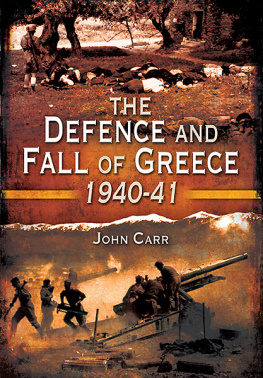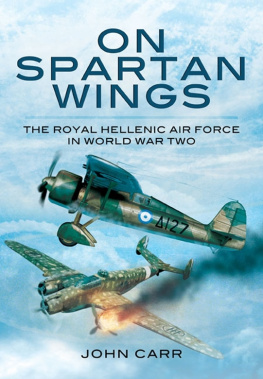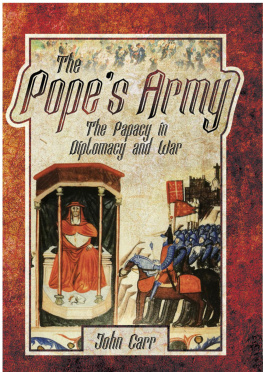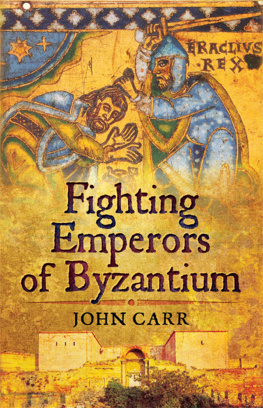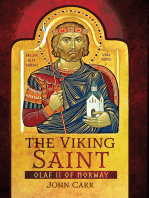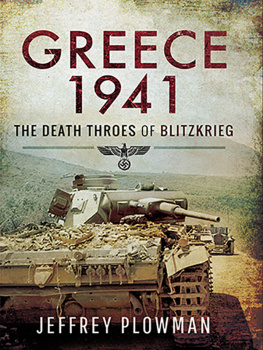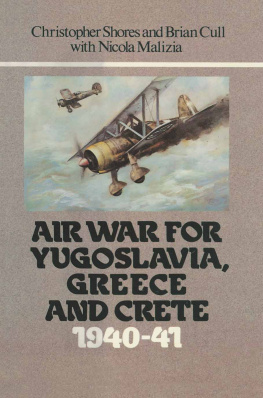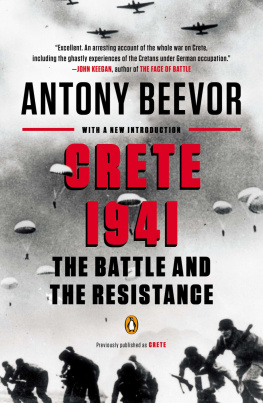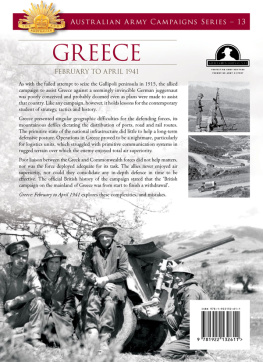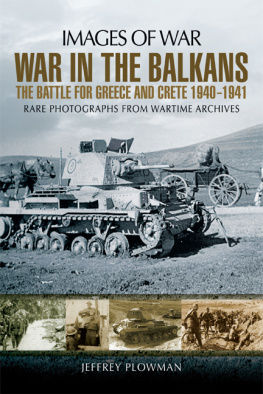First published in Great Britain in 2013 by
P E N & S W O R D M I L I T A R Y
An imprint of
Pen & Sword Books Ltd
47 Church Street
Barnsley
South Yorkshire
S70 2AS
Copyright John C. Carr 2013
ISBN 978-1-78159-181-9
PDF ISBN: 978-1-47382-916-9
EPUB ISBN: 978-1-47382-830-8
PRC ISBN: 978-1-47382-873-5
The right of John C. Carr to be identified as the Author of this Work has been
asserted by him in accordance with the Copyright, Designs and Patents Act 1988.
A CIP catalogue record for this book is
available from the British Library.
All rights reserved. No part of this book may be reproduced or transmitted in any
form or by any means, electronic or mechanical including photocopying, recording
or by any information storage and retrieval system, without permission from the
Publisher in writing.
Typeset by Concept, Huddersfield, West Yorkshire.
Printed and bound in England by
CPI Group (UK) Ltd, Croydon, CRO 4YY.
Pen & Sword Books Ltd incorporates the Imprints of Pen & Sword Aviation, Pen
& Sword Family History, Pen & Sword Maritime, Pen & Sword Military, Pen &
Sword Discovery, Wharncliffe Local History, Wharncliffe True Crime,
Wharncliffe Transport, Pen & Sword Select, Pen & Sword Military Classics, Leo
Cooper, The Praetorian Press, Remember When, Seaforth Publishing and
Frontline Publishing.
For a complete list of Pen & Sword titles please contact
PEN & SWORD BOOKS LIMITED
47 Church Street, Barnsley, South Yorkshire, S70 2AS, England
E-mail:
Website: www.pen-and-sword.co.uk
Contents
Preface
Warfare has always been a potent generator of myth. Ever since Homer brought the sacrifices and sufferings of war to lasting attention in The Iliad, people have wanted to remember and commemorate them, to find some way of assuring themselves that those tribulations and vanished lives meant something, that what happened was for some meaningful purpose.
Wars beget myths in proportion to how right they are perceived to be. Hollywood and the global media industry have made colossal profits out of this largely artificial distinction. Even now, the Allied viewpoint in the Second World War prevails in the public mind as supposedly a clear case of punishing an evil tyrant, be it Hitler or Tojo. More recent wars such as Vietnam or the two Gulf conflicts have not had the benefit of such a Manichaean framing. The presumed moral guidelines of the later wars were far less clear and hence less liable to myth-making.
I employ the term myth in its sociological rather than colloquial sense. A myth need not be outright fiction. It can refer to an undoubted historical event. The myth-making consists of elevating and refining and distorting the memory of that event until it becomes a defining cultural trait, a part of who a people are. An essential element in this process is the imposition of a moral framework, a good guy, bad guy narrative, with ourselves, of course, as the good guys. To take one example, books and films about the Battle of Britain from the 1950s to the 1970s were all about fresh-faced, insouciant and jokey British lads shooting down legions of grim-jawed, beetle-browed Sieg Heil-barking Luftwaffe pilots, even though in real life the characters of both classes of men were pretty much the same. Both included heroes and cowards, bad apples and near-saints as well as ordinary chaps. The moral distinction between them was nil. They were simply men in uniform called on to fight for their country. Yet even today the myth of good RAF versus the bad Luftwaffe persists.
To turn to the subject of Greece, few modern Greek myths have been more potent, more igniting of national pride, than the story of the Italian invasion of October 1940 and subsequent repulse in the mountains of Albania in the ensuing months. It remains one of the few examples of such myths (again, in the sociological sense) largely justified by the historical record. The pride the Greeks still feel in this fully rivals, if it does not exceed, the pride the British feel for the Battle of Britain in the same year. For the past seventy-odd years the Greek media and schools have been part of a great campaign of historical parallelism, likening the Albania campaign to the glories of Marathon and Thermopylai, endlessly repeating Churchills facile hyperbole that it ought to be said not that Greeks fight like heroes, but heroes fight like Greeks. In Italy, on the contrary, the post-war tendency has been to forget about the whole thing like a bad dream. As one Italian friend put it to me some years ago, the present-day Italian military establishment shame-facedly regards the Albania debacle as la vergogna del corpo the disgrace of the corps (in this case the Alpine troops).
That said, however, Mussolinis aggression on hitherto-neutral Greece was frankly as naked as it gets. If there is such a thing as completely unprovoked aggression, 28 October 1940 came close, on a par with Hitlers march into Poland, the Japanese attack on Pearl Harbor and the Iraqi invasion of Kuwait in 1990. In the Greek case, even a good portion of the Italian military establishment was aghast at the decision. And when within a matter of days the Greeks threw the aggressor well back into Albania, the Allied world applauded. Here, it seemed, was justice on a divine scale. It was thus especially tragic that Hitler, to drag Mussolini out of the mire of an Axis defeat, steamrollered over Greece and wiped out all the countrys gains in April and May 1941.
Yet a serious historian cannot rely on myths, however well-grounded in fact they might be. It is all too easy to approach a study of the Albania campaign with a predisposition in favour of the victim Greece. The purpose of this history is not to justify Greece at the expense of Italy, nor indeed to justify the Allies against the Axis. That is the task of the myth-driven mass media, not the military historian. When the guns begin to speak, issues of right and wrong have a tendency to quickly evaporate in the reciprocal struggle to survive. Its the fate of all soldiers in all uniforms, from the youngest private to the top field marshal, to struggle through the fog of all wars. The arms are the man, not what the politicians say he has to fight for.
To provide as authentic a picture of the campaign as possible, I have relied mostly on the earliest possible sources, written when memories were fresh. These include the memoir of General Papagos, the Greek commander-in-chief. Though it is mostly a ponderous and dull chronicle of the technical details of the campaign and has little narrative meat, it has the merit of scientific impartiality. By far the best writer on the Italian side is Mario Cervi, whose classic and admirably balanced Storia della Guerra di Grecia (available also in English as Hollow Legions) draws on all the key original sources in a unified and perceptive narrative, though the authors rather too-obvious anti-Mussolini animus is a drawback in that it tends to pile blame on a single leader. The standard Greek history of the campaign is Angelos Terzakis Greek Epic 19401941 (available in Greek only), a strongly-written work which, however, suffers from the defect of sensationalism a necessary attribute, it must be admitted, for a market among the Greek public. During my initial researches I was extremely fortunate to discover the War Diaries of Prince Peter of Greece, who served as a liaison officer with the British Military Mission in Greece in 1940. The princes direct observations, which I believe have never been translated into English, throw a fascinating and often startling light on the thinking and activities of Greeces British allies at the time. The last volume of the diaries of Ioannis Metaxas is crucial for an understanding of what went on in the mind of that great statesman in the months before his death. Another diary, a hastily-scrawled one by an Evzone soldier named Miltiades Nikolaou, illustrates the ordeals of the men at the front.
Next page
